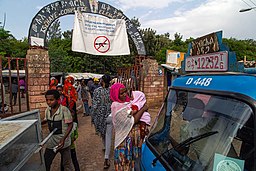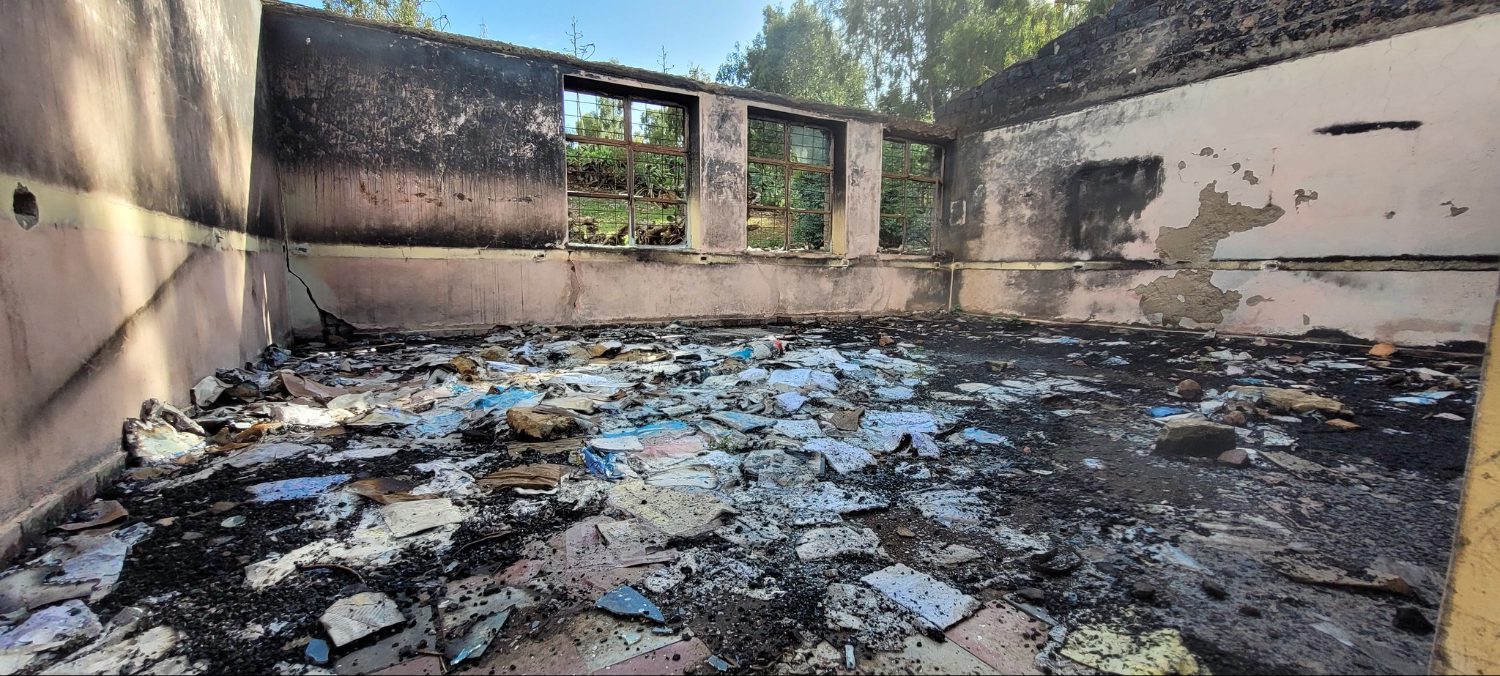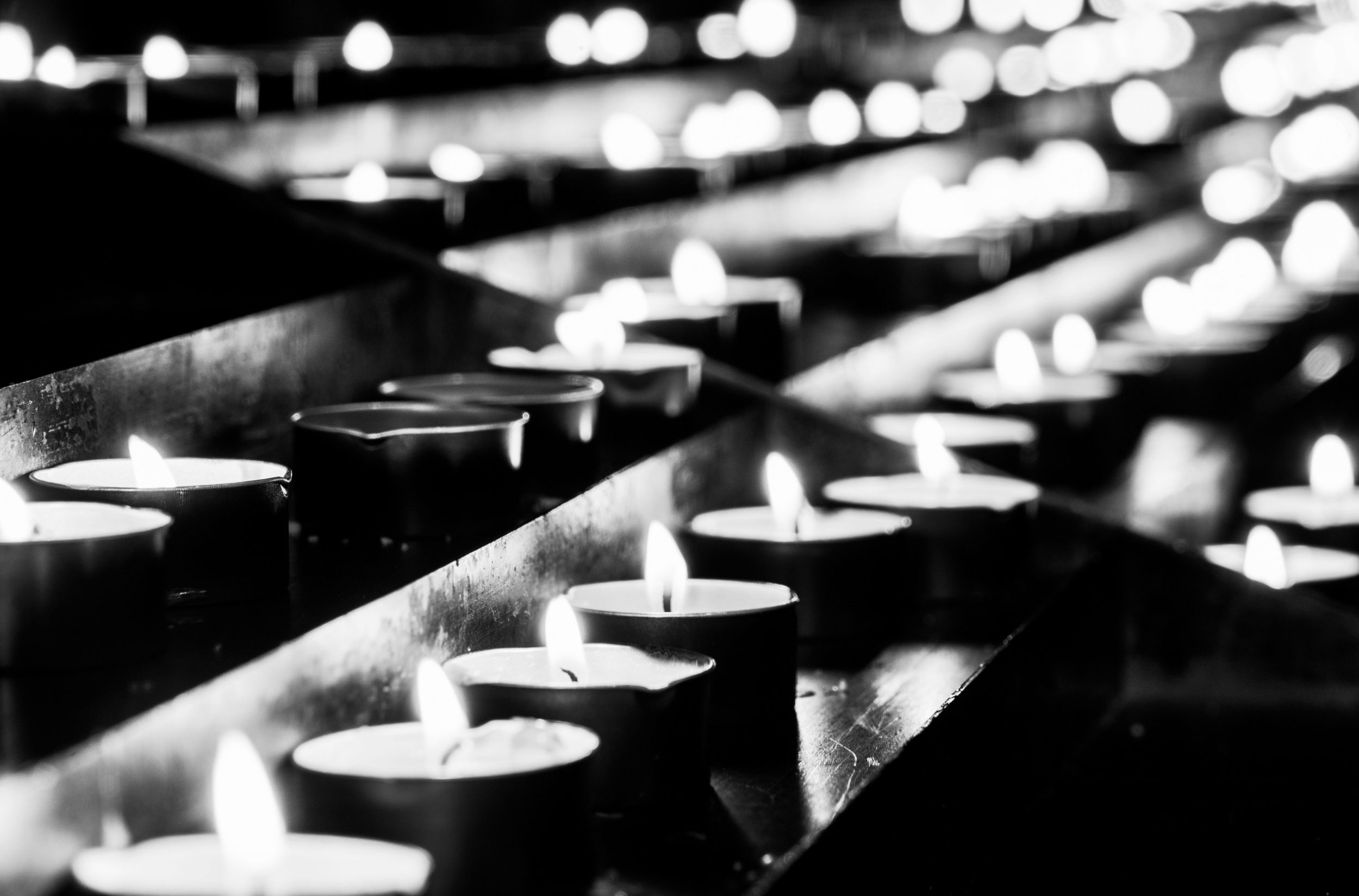Amid the confusing political landscape in Ethiopia today, and the last-minute efforts to mediate a peaceful resolution, some things are clear.
The Tigrayan people have faced a campaign of extermination through massacre, expulsion, rape and starvation. Many have perished. Many more are suffering. All are traumatized. As a people, they have survived. The Tigrayan people have the sympathy of anyone with a heart on account of their unimaginable suffering.
In one of the most astonishing feats of arms in history, the Tigray Defence Forces built an army and comprehensively defeated their enemies within a year. Contrary to the conventional wisdom that there is no military solution, this war has a clear loser: the Ethiopian National Defence Force and its commander in chief. Their loss is total and it is theirs alone.
The TDF has won respect and now has the potential to command the political stage in Tigray and in Ethiopia.
The Tigray People’s Liberation Front is distrusted by many and hated by some—including in Tigray. The three Tigrayan opposition parties whose members have joined the TDF have openly declared that the status quo in Tigray must change. More than ever before, Tigrayans are aware that their primary task is resolving their own political issues through an all-inclusive process. As a matter of urgency, Tigrayans need to attend to their political culture and its shortcomings regarding transparency, tolerance, inclusion and pluralism.
The Tigrayan leadership said it does not want to assume the burden of the Ethiopian state or the hazards of policing the national capital. They know that Tigray’s security requires a stable Ethiopia, but they will invest little in that stability.
The TPLF has joined with the Oromo Liberation Army and seven other smaller groups to form the United Front of Ethiopian Federalist and Confederalist Forces. Both the process and the content of the deal are opaque. Many are alarmed, fearing that a political agenda is being set without consultation and imposed without negotiation.
The Tigrayans’ survival and victory owes nothing to the international community, and until the United Nations and African Union begin to reckon with their moral failures over Tigray, they will have little leverage over what the Tigrayan leadership decides to do.
In whatever political settlement emerges from the war, whatever the outcome of the Tigrayans’ exercise of their right of self-determination, the Tigrayans will be seeking permanent security and the rest of Ethiopia will have to defer to that whether they like it or not. Tigray will not disarm.
Tigray will also be seeking international assistance to rebuild. Not only will it retain its own security capability but it will demand direct access to international aid.
Abiy Ahmed has lost, totally. It was his war. And his militarism, his lies and his crimes have come back to destroy him. It no longer matters whether he is a confabulist, a true believer, a megalomaniac, or a misguided dreamer. He has just one choice to make: either to negotiate his surrender or to fight on to the bitter end.
The Ethiopian National Defense Force lost the war in June. Rather than recognizing the iron logic of the battlefield and seeking to negotiate, Abiy chose to fight on. Since then, the TDF has been fighting a more-or-less conventional war while the rump of the ENDF, Amhara militias and their allies have been fighting an unconventional war involving human wave attacks, irregulars and air attacks, along with a starvation siege and a propaganda war. The reconstituted divisions of the ENDF resembled a conventional army only in the uniforms worn by their conscripts and the labels attached to their formations. This imitation army postponed military collapse by a month or two at the cost of enormous bloodshed. They may continue as guerrillas. More significantly, the way in which a war is organized indicates the way in which a state is structured. Abiy’s kind of war-making indicates that the centralized state had already failed and should the Prosperity Party remain in power, Ethiopia would no longer be an institutionalized state and would instead be a fragmented market in political loyalties in which ethnic demagogues, warlords and mercenaries competed for power. Rather than a unified security sector, it already has a deregulated security arena.
Abiy inherited a state, dreamed of an empire, and will be remembered for having destroyed both.
Abiy’s facilitators are no single group. They include Amhara ethno-nationalists, the cronies of the Oromo People’s Democratic Organization who smoothed his ascent to power and benefited from it, and businesspeople who saw the jewels of the developmental state for sale at bargain prices.
The Amhara have lost an empire and not found an identity. Amhara progressives in the student movement of the 1970s sought to build a civic nationalism that repudiated ethno-imperial chauvinism. Under the EPRDF the Amhara national regional state within the federation adopted a progressive definition of citizenship, and Amharas in general benefited from the developmental state project. Nonetheless a dominant section of the Amhara political elite still nurtured a vision of an Ethiopia made in their image. The civic republican critique of ethnic federalism lapsed too quickly into an ethno-national agenda, its direction of travel set by an extremist fringe.
Doubtless the Amhara leadership will face an immediate future of recrimination. Families whose sons and daughters were sacrificed en masse at the front lines of the war will ask why they were lied to, their passionate patriotism channelled exploited to no good end. Others who see their collective reputation soiled by the mass atrocities ordered by Addis Ababa and the vitriol of social media will also be traumatized, while non-Amhara—whether Tigrayans, Oromos, or numerous minority groups from Agaw, Beni Shangul or Qemant—are not likely to be forgiving. Will the coming political reconfiguration be an opportunity for candid reflection or will it turn into a search for scapegoats who betrayed them and external enemies who conspired against them?
There can be no Ethiopia without a major role for the Amhara. It is crucial for them and for their neighbors—including of course the Tigrayans—that they regain their composure and secure a role. Much will depend on whether those few members of the Amhara elite who stood up against the crimes and blunders of the Abiy administration are able to find a political voice.
Ethiopia is a nation of numerous minorities whose members have justifiable fears for their rights and even their survival.
The Oromo have the state at their feet. It is for them to determine the Ethiopia’s political settlement for a generation or longer. They have one common cause with the Tigrayans: to bury the Ethiopian empire, once and for all. That common cause is sufficient for them to be allies for now. However, the Oromo will want to secure their potentially dominant position in Ethiopia without relying on Tigray and its military capabilities.
More importantly, the Oromo parties will want to renew the terms on which Ethiopia’s nations and communities come together to form a post-imperial polity.
Ethiopians may wish to have a federation, a confederation, a commonwealth of independent states, or other forms of association explored by the constituent parts of former empires around the world. How to associate with neighboring states and communities—especially Eritrea and Somalia—will also be a topic for debate. The constituent states of Ethiopia will probably want to follow Tigray in controlling their own security and seeking independent access to international finance. It is better to spend more time discussing these options than rush to a formula that might cause more friction and even violence.
National dialogue is a project of transforming political culture as much as constitutional engineering. It requires shifting political discourse from its obsession with legal exactitude into an embrace of messy uncertainties underpinned by norms of tolerance and civility. It may be better served by a long transition that prioritizes open-ended discussion and consensus building rather than by expert efforts to design permanent constitutional settlement.
Are the Oromo leaders able to rise to this historic challenge? Division and opportunism have been the recurrent weakness of Oromo political organizations at critical junctures, such as 1974-76, 1991-92, and 2018, when they fail to seize the moment and grasp power that is there for the taking. Oromo leaders are too often on the outside looking in (or inside prison looking out). The most principled and democratic Oromo leaders have been handicapped by their preference for dialogue and consensus, while those who are ready to be coopted by the power of the day find that they quickly disappoint their constituency, though they may gain personal and factional benefit.
The 2015-18 Oromo protest movement was a coalition whose promise of democratic reform exceeded the organizational capacity of its leaders. Its leadership faces three simultaneous challenges. The first is to revive the spirit of that movement and restore its democratizing agenda. The second is to demonstrate a capacity to govern, noting that much of the corruption and mismanagement of Oromiya region can be attributed to the senior members of the Oromo People’s Democratic Organization themselves. Third is that Oromo leaders need to assuage the anxieties of Ethiopia’s minorities, who fear that the demographic weight of the Oromo could lead to them seeking to dominate the country. These issues converge on the explosive question of the identity, boundaries, constitutional status, and governance of the federal capital.
Ethiopia is a nation of numerous minorities whose members have justifiable fears for their rights and even their survival. Any political settlement based on a variant of ethnic federalism could disadvantage them, while chaos and militarized politics can pose existential threats. Among those most at risk we must count settlers and migrants who are minorities in the region where they live, notably Amhara settlers in south and west Ethiopia.
Any form of democracy in Ethiopia requires civility in cyberspace. Social media has become a battleground without moderation or mercy, where hatred and extremism can flourish. Even if the project of restoring a mythical glorious Ethiopian empire is defeated in the real world it will probably continue to live in the virtual world, poisoning the country’s political discourse. The taming of cyberspace requires new policies by Facebook and Twitter among others.
Ethiopian history has as many episodes of state fragmentation and dispersal of authority, as it has periods of centralized power. The recurrent element of a weak or non-existent central government in the country’s political settlement has not been adequately studied by historians and is under-valued, dismissed as an anomaly when in truth it has often been the case. Today, the diminution of the centralized state is inevitable and its collapse is possible. It may not be reconstituted in our lifetimes. The real politics of a disassembled or fragmented state are likely to resemble rivalrous bargaining in a political market, using violence and money, rather than formal procedures in the institutions of common governance. Instead of bemoaning this reality, it is better to explore how alternatives systems of governance can be made viable.
The current federal constitution begins, ‘We the Nations, Nationalities and People of Ethiopia: Strongly committed, in full and free exercise of our right to self-determination, to building a political community.’ Article 8 defines sovereignty: ‘All sovereign power resides in the Nations, Nationalities and Peoples of Ethiopia.’ All in Ethiopia and internationally who speak of sovereignty in the context of the current crisis should take this as a starting point—sovereignty does not lie with the executive of the federal government.
The final demise of the Ethiopian empire is happening now. But there is a vacuum of political proposals. Whichever political leaders have the imagination and courage to seize the opportunity and re-invent Ethiopia in its next phase, will be best placed to lead the country, hopefully in a peaceful and democratic way.



